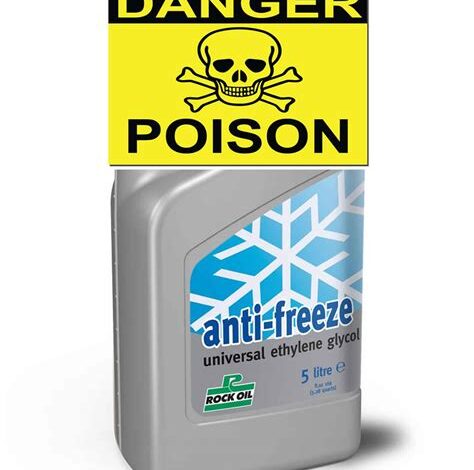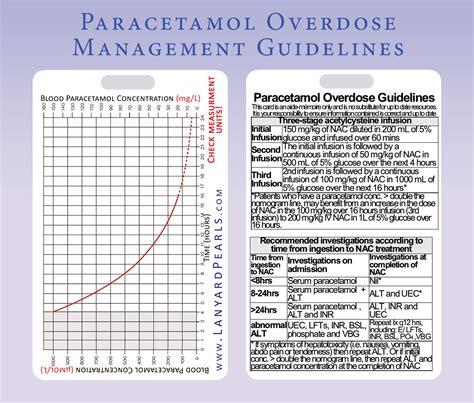
Nicotine Poisoning Symptoms
Nicotine Poisoning Symptoms
Nicotine is a chemical substance found in tobacco products, including cigarettes, cigars, and chewing tobacco. While many people are aware of the health dangers associated with smoking, few realize that nicotine can be toxic if ingested in large amounts. In fact, nicotine poisoning is a serious condition that can cause a range of symptoms.
The symptoms of nicotine poisoning can vary depending on the amount of nicotine ingested and how it was ingested. Ingesting nicotine through smoking or vaping can cause symptoms such as nausea, vomiting, headache, dizziness, and rapid heartbeat. Ingesting large amounts of nicotine can lead to more severe symptoms, including seizures, respiratory failure, and even death.

One of the most common signs of nicotine poisoning is nausea and vomiting. These symptoms occur because nicotine stimulates the release of stomach acids, which can irritate the lining of the stomach and cause an upset stomach. Other symptoms of nicotine poisoning include headache, dizziness, and confusion. These symptoms occur because nicotine affects the central nervous system, causing changes in brain chemistry that can lead to these side effects.
In some cases, nicotine poisoning can also cause seizures. Seizures occur when there is abnormal electrical activity in the brain, which can be caused by a variety of factors including nicotine ingestion. If left untreated, seizures can lead to brain damage or even death.
If you suspect that you or someone you know may be experiencing nicotine poisoning, it is important to seek medical attention immediately. Treatment for nicotine poisoning typically involves supportive care, such as providing oxygen and fluids to help with dehydration and electrolyte imbalances. In severe cases, medications may be needed to control seizures or other symptoms.
In conclusion, the symptoms of nicotine poisoning can range from mild to severe and can be life-threatening if left untreated. If you or someone you know is experiencing any of the symptoms associated with nicotine poisoning, seek medical attention immediately to prevent further complications. Remember that prevention is the best course of action when it comes to nicotine poisoning, so avoid smoking or vaping if possible, and always keep tobacco products out of reach of children and pets.
How to Recognize the Symptoms of Nicotine Poisoning
Nicotine poisoning is a serious condition that can occur when someone ingests too much nicotine. Nicotine is a highly addictive substance found in tobacco products, e-cigarettes, and nicotine replacement therapies. It is crucial to recognize the symptoms of nicotine poisoning to seek medical attention immediately.
The symptoms of nicotine poisoning vary depending on the amount of nicotine consumed. Mild cases may cause nausea, vomiting, and headache. More severe cases can lead to seizures, rapid heartbeat, and difficulty breathing. In extreme cases, nicotine poisoning can be fatal.
One of the first signs of nicotine poisoning is an upset stomach. People who have ingested too much nicotine often feel nauseous or experience vomiting shortly after exposure. These symptoms can last for several hours and may be accompanied by diarrhea and abdominal pain.
Another common symptom of nicotine poisoning is dizziness. An individual experiencing nicotine toxicity may feel lightheaded or faint. They may also have difficulty maintaining balance or coordination.
Other signs of nicotine poisoning include rapid heartbeat, increased blood pressure, and difficulty breathing. These symptoms can be life-threatening if not treated promptly. If you suspect that someone has nicotine poisoning, call emergency services immediately.
It is important to note that nicotine poisoning can occur from various sources, including accidental ingestion of nicotine-containing products, intentional misuse, or exposure to secondhand smoke. Individuals who work in industries that involve handling nicotine-related chemicals should take extra precautions to avoid accidental exposure.
In conclusion, recognizing the symptoms of nicotine poisoning is critical to seeking prompt medical attention. Symptoms of nicotine poisoning include upset stomach, dizziness, rapid heartbeat, and difficulty breathing. If you suspect someone has nicotine poisoning, call emergency services immediately. Avoiding accidental exposure to nicotine and proper handling of nicotine-containing products can help prevent this dangerous condition.
Nicotine Toxicity: Symptoms to Look Out For
Nicotine is a highly addictive substance found in tobacco products. It acts as both a stimulant and a sedative, depending on the dose taken. While using nicotine in moderation may not cause harm, excessive consumption or accidental ingestion can result in serious health problems. In this article, we will discuss the symptoms of nicotine toxicity to help you recognize the warning signs.
One of the first signs of nicotine toxicity is vomiting, which usually occurs within the first 15-45 minutes after exposure. Nausea and stomach upset are also common symptoms that can occur before or after vomiting. Other early symptoms may include headache, dizziness, and confusion.
As nicotine levels continue to rise, more severe symptoms can manifest. Seizures, muscle twitches, and respiratory distress are all possible outcomes of nicotine poisoning. In some cases, individuals may experience tachycardia (rapid heartbeat), hypotension (low blood pressure), or hypertension (high blood pressure).
If left untreated, nicotine toxicity can lead to coma or even death. It’s essential to seek medical attention right away if you suspect someone has ingested too much nicotine. Treatment options may include gastric lavage (stomach pumping), activated charcoal, and medications to manage symptoms such as seizures or irregular heart rhythms.
Prevention is the best way to avoid nicotine toxicity. Keep all tobacco products (including e-cigarettes) out of reach of children and pets, and never leave them unattended. If you use nicotine products, be sure to follow the recommended dosage and avoid overuse.
In conclusion, nicotine toxicity is a serious condition that can have grave consequences if left untreated. Knowing the symptoms of nicotine poisoning can help you take action quickly and get the necessary treatment. Remember to keep all tobacco products away from children and pets and use nicotine products responsibly.
Common Symptoms of Nicotine Poisoning
Nicotine is a highly addictive substance found in cigarettes, e-cigarettes, and other tobacco products. While most people who use tobacco products experience minor side effects such as dizziness or nausea, consuming large amounts of nicotine can be extremely dangerous.
Nicotine poisoning occurs when a person ingests or absorbs too much nicotine into their body. This can happen if they smoke or vape too much, chew tobacco, or accidentally ingest nicotine gum, patches, or liquid.

The symptoms of nicotine poisoning can range from mild to severe and can occur within minutes or hours after exposure. Some common symptoms include:
1. Nausea and vomiting: Nicotine poisoning can cause stomach irritation, leading to feelings of nausea and vomiting.
2. Increased heart rate: Nicotine stimulates the nervous system, increasing heart rate and blood pressure. In extreme cases, this can lead to a rapid heartbeat or palpitations.
3. Headache: Nicotine can cause blood vessels in the brain to constrict, leading to headaches and dizziness.
4. Sweating: Excessive sweating is a common symptom of nicotine poisoning, caused by the stimulation of the sympathetic nervous system.
5. Confusion: High doses of nicotine can cause confusion, disorientation, and even seizures.
6. Difficulty breathing: Nicotine can cause respiratory distress, leading to shortness of breath or difficulty breathing.
If you or someone you know is experiencing these symptoms after using tobacco or nicotine products, seek medical attention immediately. While nicotine poisoning is rare, it can be life-threatening if not treated promptly.
Preventing nicotine poisoning is essential. Avoid smoking or vaping nicotine altogether, and keep all nicotine products out of reach of children and pets. If you use nicotine replacement therapy products, be sure to follow the instructions carefully and never exceed the recommended dosage.
In conclusion, understanding the symptoms of nicotine poisoning can help you identify potential health risks associated with tobacco and nicotine product use. By taking precautions and seeking medical attention when necessary, you can protect yourself from the dangers of nicotine poisoning.
Nicotine Overdose: Warning Signs and Symptoms
Nicotine is a common substance found in cigarettes, e-cigarettes, vaping devices, and smokeless tobacco products. It is highly addictive and can cause severe health problems if consumed in excess. Nicotine overdose is a serious condition that occurs when too much nicotine enters the body. Knowing the warning signs and symptoms of a nicotine overdose is crucial to prevent potentially dangerous complications.
The initial symptoms of nicotine overdose include dizziness, nausea, vomiting, and abdominal pain. It may also cause rapid heartbeat, high blood pressure, and difficulty breathing. In severe cases, nicotine overdose can lead to seizures, coma, and even death. Therefore, it is essential to seek medical attention immediately if you or someone you know experiences any of these symptoms after consuming nicotine.
Individuals who are at a higher risk for nicotine overdose include young children, pregnant women, and people with pre-existing medical conditions such as heart disease, diabetes, or high blood pressure. Additionally, those who use nicotine replacement therapies such as patches, gum, or lozenges should be aware of the potential risks associated with their usage.
Prevention is key when it comes to avoiding nicotine overdose. Limiting the amount of nicotine consumed, avoiding the use of multiple nicotine products simultaneously, and following the recommended dosage of nicotine-replacement therapies are all effective ways to prevent an overdose.
In conclusion, nicotine overdose is a serious condition that can have severe consequences if left untreated. Knowing the warning signs and symptoms, especially if you are in a high-risk group, can help you identify the problem early and seek appropriate medical attention. Be mindful of your nicotine intake and take preventative measures to avoid overdosing.
Spotting the Early Symptoms of Nicotine Poisoning
Nicotine is a highly addictive substance that is commonly found in cigarettes, e-cigarettes, and other tobacco products. While many people are aware of the dangers of nicotine addiction, few are aware of the potential for nicotine poisoning. Nicotine poisoning occurs when too much nicotine is ingested or absorbed through the skin, leading to a range of symptoms that can be both surprising and explosive. In this article, we will discuss how to spot the early symptoms of nicotine poisoning so that you can seek treatment before the condition becomes severe.
The most common early symptom of nicotine poisoning is nausea and vomiting, which usually occurs within the first hour of exposure. Other symptoms may include dizziness, headaches, increased heart rate, and difficulty breathing. If left untreated, these symptoms can progress to more severe conditions such as seizures, respiratory failure, and even death.
If you suspect that you or someone you know has been exposed to high levels of nicotine, it is important to seek medical attention immediately. The most effective treatment for nicotine poisoning is to remove the source of exposure and provide supportive care to manage symptoms. In severe cases, hospitalization may be necessary to monitor vital signs and administer medication to control seizures or respiratory distress.
To prevent nicotine poisoning, it is important to avoid using tobacco products altogether. If you do use these products, be sure to read the packaging carefully and follow all instructions for use. Additionally, keep your tobacco products out of reach of children and pets, as they are particularly susceptible to nicotine poisoning.
In conclusion, spotting the early symptoms of nicotine poisoning can be critical in seeking prompt medical attention and preventing serious complications. If you experience any of the symptoms described above after using tobacco products, seek medical attention immediately. Remember, prevention is key, so always use tobacco products responsibly and keep them out of reach of others.
Nicotine Poisoning Symptoms and Treatment
Nicotine is an addictive chemical present in tobacco products, including cigarettes, cigars, and chewing tobacco. Although nicotine can have some therapeutic effects, it can cause severe health issues if consumed in excessive amounts. Nicotine poisoning occurs when a person ingests or inhales too much nicotine, leading to various symptoms that can be life-threatening.
Symptoms of Nicotine Poisoning:
The symptoms of nicotine poisoning can vary depending on the amount of nicotine consumed. In mild cases, individuals may experience nausea, vomiting, dizziness, and headaches. However, in severe cases, the symptoms can progress to seizures, respiratory failure, and even death. Other symptoms of nicotine poisoning may include confusion, agitation, tremors, rapid heartbeat, and high blood pressure.
Treatment of Nicotine Poisoning:
If you suspect nicotine poisoning, seek medical attention immediately. The treatment for nicotine poisoning depends on the severity of the symptoms. Doctors may administer activated charcoal to absorb the nicotine in the stomach and intestines. In severe cases, patients may need hospitalization, oxygen therapy, or mechanical ventilation to help them breathe.

Preventing Nicotine Poisoning:
Nicotine poisoning can be prevented by taking appropriate precautions. Keep all tobacco products out of reach of children and pets. Be cautious while handling nicotine-containing products like e-cigarettes and vape pens, which can deliver high doses of nicotine in a short time. Always follow the manufacturer’s instructions for use and storage of these products.
Conclusion:
Nicotine poisoning is a severe condition that requires immediate medical attention. If you or someone you know experiences symptoms of nicotine poisoning, contact a healthcare professional as soon as possible. Prevention is key – keep all nicotine-containing products out of reach of children and pets and handle them with caution. By taking the right steps, we can prevent and treat nicotine poisoning effectively.


